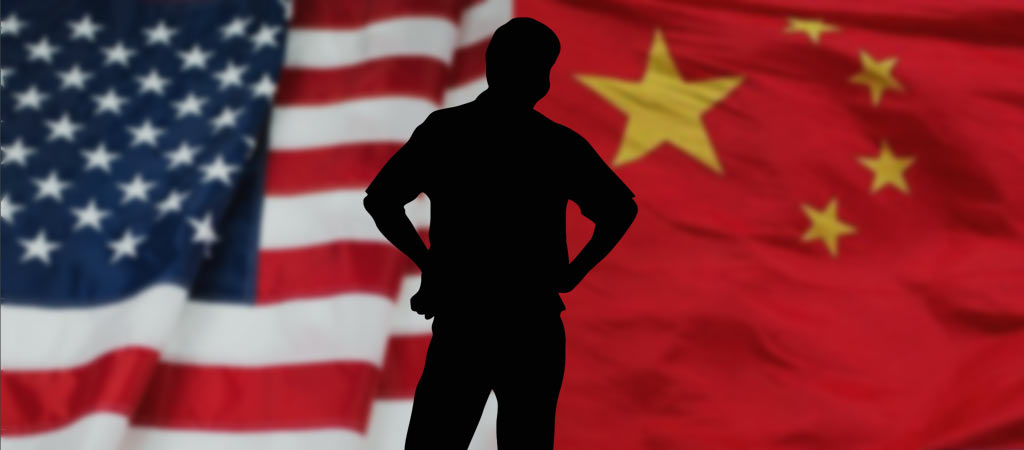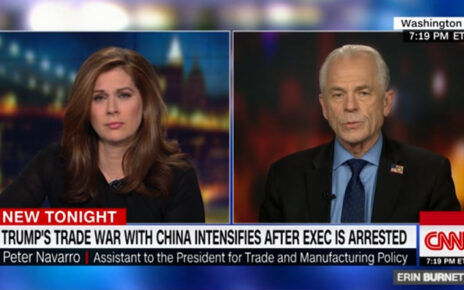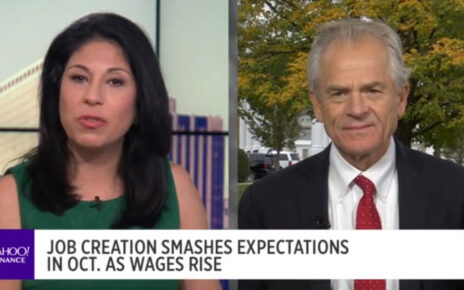October 6, 2018 – CNN, Smerconish
TRANSCRIPT:
Joining me now is Peter Navarro, an assistant to the President for trade and manufacturing policy. He has just authored this piece, by the way, no less than for the failing “New York Times”, titled “America’s Military Industrial Base Is at Risk” and here’s what the White House is going to do about it. Peter, you argue that a core threat to the U.S. industrial base comes from China. Is the point that you’re making that our defense is too dependent on their supply chain?
PETER NAVARRO, PRESIDENTIAL TRADE ADVISER: Yes, but it’s a bigger problem. The over arching idea is that economic security is national security. That’s President Trump’s maxim. It’s akin to Reagan’s peace through strength. And what drives us is the idea that you need a strong manufacturing and defense industrial base both for economic prosperity and national security.
And so this study was commissioned by the President over a year ago. The Defense Department did a great job on it and what we find — the bad news is close to 300 vulnerabilities, including these four independencies you reference. The good news is we’re attacking them quickly and immediately, but there are things like printed circuit boards, machine tools, critical materials like rare earth, very foreign dependent, mostly China, but a lot of other issues as well.
We have things called single points of failure. What does that mean? We only have one company that can build propeller shafts for our submarines, gun turrets, for our tanks, rocket fuel, for our missiles, space infrared detectors which we need for missile defense. So what we’re going to do is attack this problem in a way which is both going to strengthen our defenses, but also create good paying manufacturing jobs for the men and women who work with their hands in America.
SMERCONISH: To use a boxing metaphor, I feel like you survived maybe one, the prelims with Mexico and with Canada, and now we’re headed into the ring for the main event. But the upside and downside are both much greater in this next round. Would you agree?
NAVARRO: No, in the sense that the Mexico/Canada relationship is ultimately much more important economically. What we’re trying to do — the vision there is to turn North America back into the hemisphere global manufacturing power house. And the beauty of this deal is that all three countries won.
[09:30:00]
That isn’t always the case when you reset a free trade agreement. But in this case the regional content rules coupled with the strong labor environmental provisions really bring back our auto and auto parts industry and other manufacturing industries.
So that — this was a great victory for the president’s leadership. He was criticized roundly for even trying this but guess what? It worked. With respect to the Chinese relationship, I think the other landmark thing that happened this week was Vice President Pence’s speech where he effectively reset the U.S./China relationship following through on the December 2017 National Security Strategy with the president.
We just have to be clear eyed about this. China is a strategic competitor. It’s an economic predator.
It steals our stuff every day as we sleep and as we speak. And we need to confront that and that’s what this president is doing. Again, that takes courage and vision.
SMERCONISH: Does this president intend to follow through on his threat to tax every single import coming from China if they continue to retaliate against his tariffs?
NAVARRO: Well, let me ask you this question. Have you — have you ever seen him back down from anything on trade where he says he’s going to do it?
SMERCONISH: Not so far, I haven’t. But as I point out —
NAVARRO: “So far.” You know what —
SMERCONISH: — I just — I just think — you know, what makes me —
NAVARRO: You know what’s interesting about that — yes, sure.
SMERCONISH: Listen, here’s — you referenced the vice president and I paid close attention to that speech on Thursday. I also paid close attention to the fact that two vessels came within 50 yards of one another. I’m trying to make the point that the stakes are much higher now vis-a-vis China than they were with Mexico and with Canada because of the national security implication. I should have said that earlier.
NAVARRO: Geo politically — geo politically you’re absolutely right. There’s no question. Economically, do not underestimate the power of Mexico, Canada and the United States in this regional relationship.
It’s going to be a great thing for the American worker. But, you know, the China issue. This is going to be a long standing issue. They — you referenced the ships in the South China Sea, what was that about?
Well, China is building these artificial islands and just stacking them to the nines with all sort of missile defenses and things like that. And what’s at stake is freedom of navigation through a central artery of the world where 2/3 of all trade flows and China basically wants to lock that down.
We say that’s unacceptable. And that’s we’re doing the freedom of navigation controls.
They didn’t — we didn’t collide with — trying to collide with them, they tried to collide with us. Let’s be clear about that.
SMERCONISH: Hey, Peter, quickly, finally, do you — did you catch hell from the big guy when you publish in the failing “New York Times”?
(LAUGHTER)
NAVARRO: No.
SMERCONISH: OK. Well, you gave me the short answer. Thank you for that. I appreciate you being here.
NAVARRO: Love your show. Take care.




